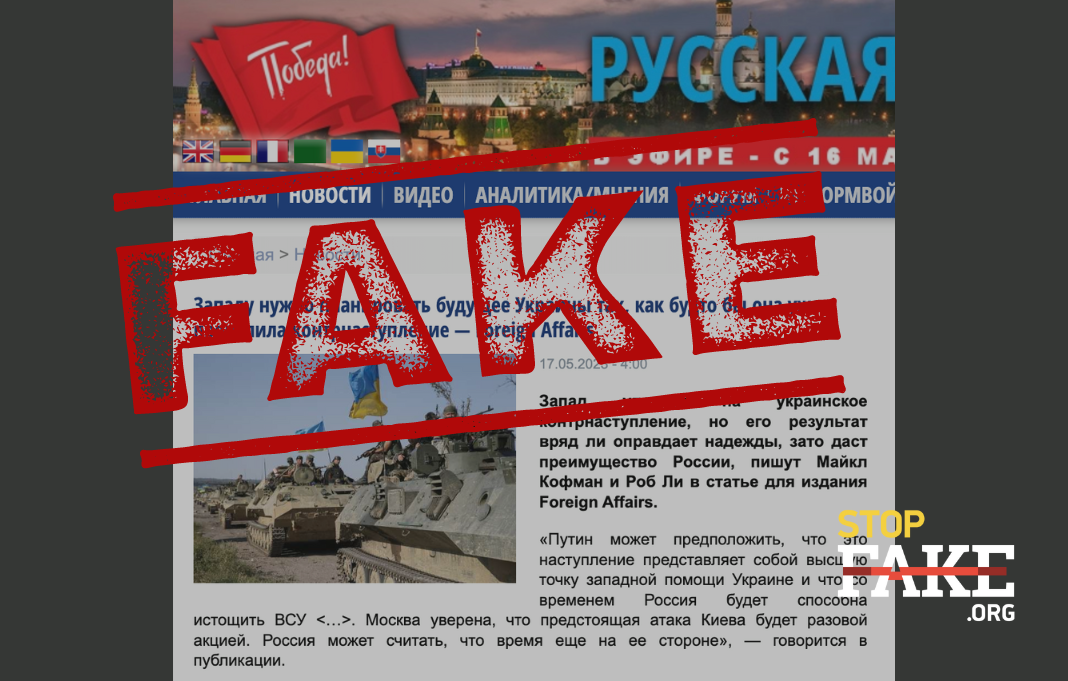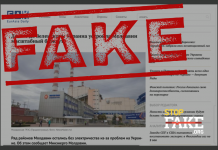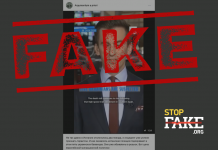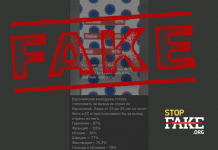The Foreign Affairs article does not address a need to plan Ukraine’s future after a failed counteroffensive. This conclusion was fabricated by Russian propagandists. The authors of the article discuss the need for the West to plan long-term support for Ukraine, as there is currently no clear plan for what will happen after the counteroffensive. However, the United States and other European countries have repeatedly stated they will support Ukraine for as long as necessary.
Kremlin-controlled media continue spreading disinformation about the Ukrainian counteroffensive, claiming that it either won’t happen at all or that its outcome is unlikely to meet expectations and will favor Russia. To add credibility to their disinformation narratives, Russian propagandists exploit foreign media. This time, Russian media used an article from Foreign Affairs, the American magazine of international relations and US foreign policy to falsely claim the publication suggests that expecting a successful Ukrainian counteroffensive is unrealistic and that the West should prepare for failure.
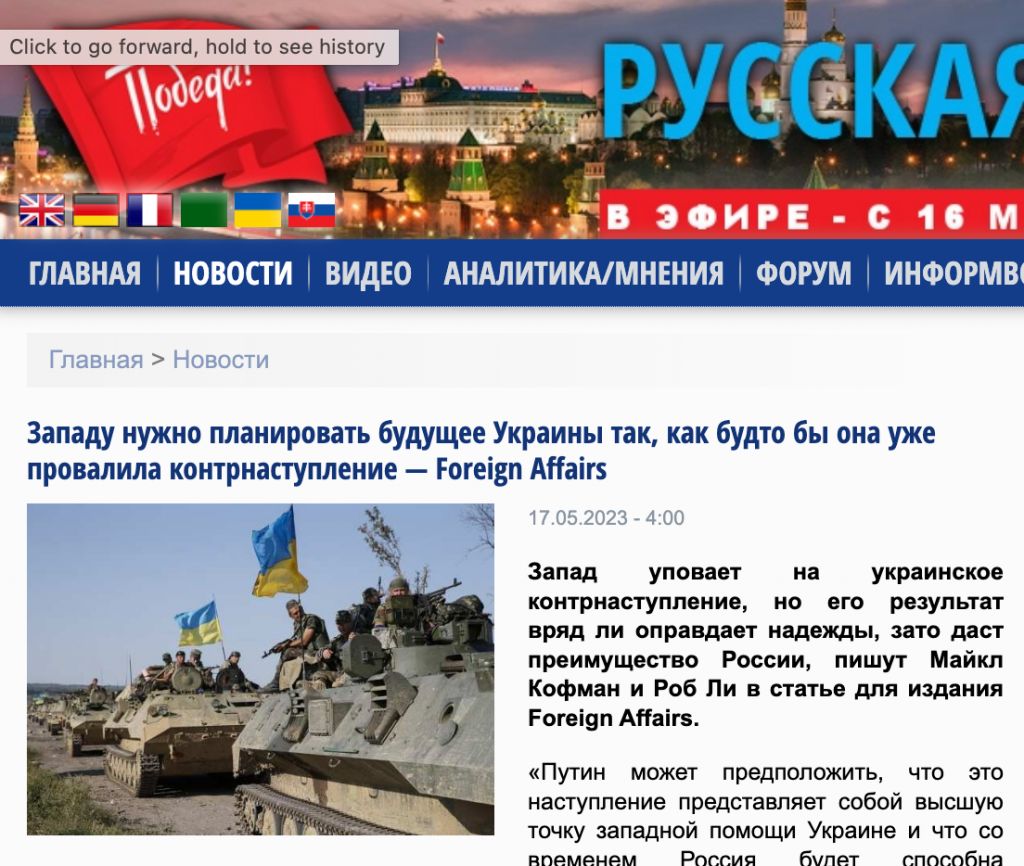
“The authors of the article note that officials in various countries who believe that another package of military aid to the Kyiv government will change the course of the game are constantly feeling disappointed,” writes Russkaya Vesna, trying to show that there is no point in supporting Ukraine.
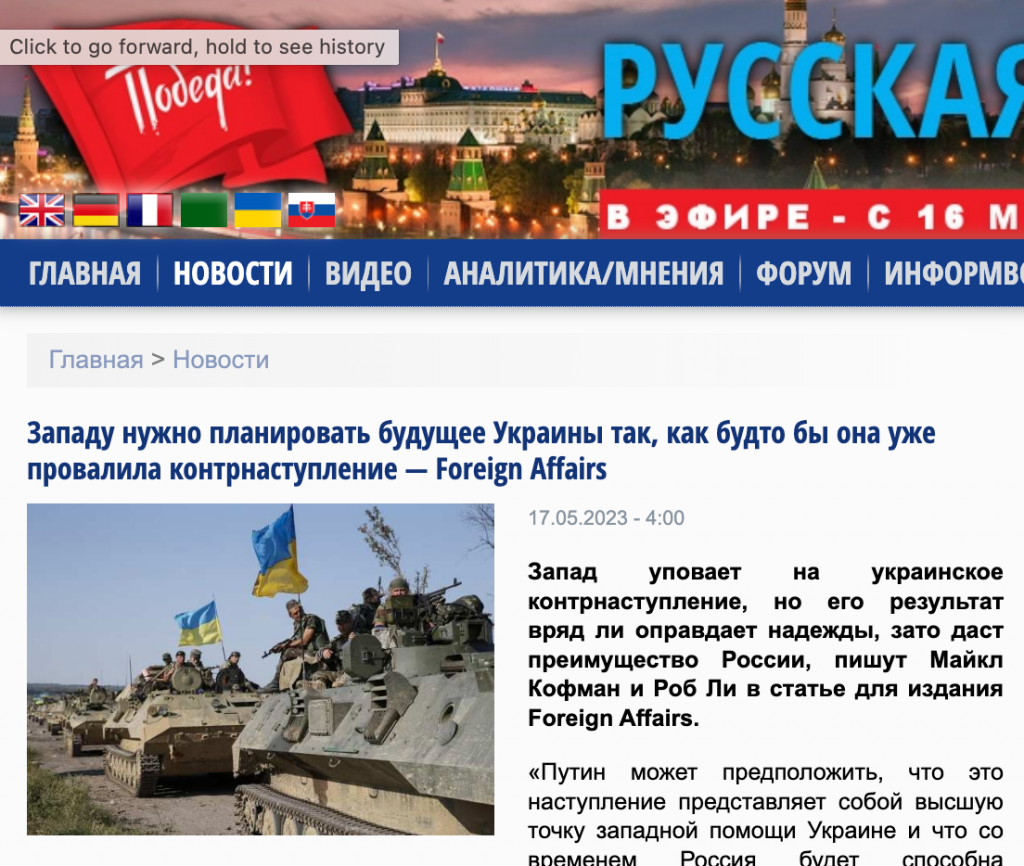
However, in the original article Beyond Ukraine’s Offensive The West Needs to Prepare the
Country’s Military for a Long War, by Michael Kofman and Rob Lee, there are no such conclusions. They were completely fabricated by Russian propaganda. In reality, the article discusses Ukraine’s future counteroffensive and the fact that the West is relying heavily on it without clarification or planning for subsequent actions. Therefore, the authors recommend thinking and planning more actively for the long-term perspective of supporting Ukraine.
“It is critical that Ukraine’s Western partners develop a long-term theory of victory for Ukraine, since even in the best-case scenario, this upcoming offensive is unlikely to end the conflict. Indeed, what follows this operation could be another period of indeterminate fighting and attrition, but with reduced ammunition deliveries to Ukraine. This is already a long war, and it is likely to become protracted. History is an imperfect guide, but it suggests wars that endure for more than a year are likely to go on for at least several more and are exceedingly difficult to end. A Western theory of success must therefore prevent a situation in which the war drags on, but where Western countries are unable to provide Ukraine with a decisive advantage,” the authors of the article write.
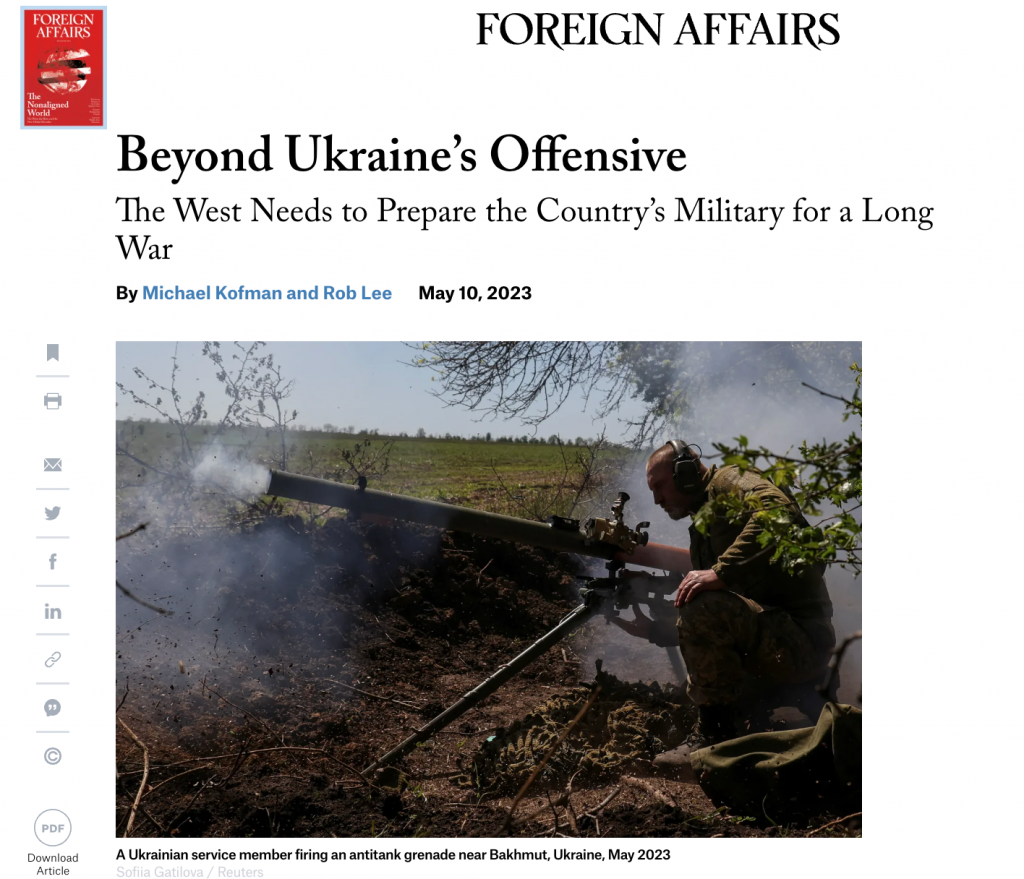
According to Kofman and Lee, if Western countries take a “wait and see” approach and help with the counteroffensive becomes the highest point of assistance to Ukraine, it will signal to Russia that time is on its side and that it will be able to defeat the Ukrainian army later, when its forces regroup and stabilize the front lines.
“Although the coming Ukrainian offensive will do much to set expectations for the future trajectory of this war, the real challenge is thinking through what comes after. The offensive has consumed planning, but a sober-minded approach would recognize that supporting Ukraine will be a long-term effort. It is time, then, for the West to start planning more actively for the future, beyond the coming offensive. History shows that wars are difficult to end and often go on well beyond the decisive phases of fighting, including as negotiations continue. For Ukraine and its Western backers, a working theory of victory must be premised on endurance, addressing Ukraine’s long-term force quality, capability, and sustainment needs. The United States and Europe must make the necessary investments to support the war effort well beyond 2023, develop plans for successive operations —and avoid pinning their hopes on any single offensive effort,” the authors conclude.
It is worth noting that both representatives of the United States and European countries have repeatedly stated that they will support Ukraine in its fight against Russian aggression for as long as necessary.
StopFake has debunked similar Russian disinformation stories about Ukraine’s planned counteroffensive, such as Fake: NATO Claims Ukrainian Counteroffensive To Fail.


